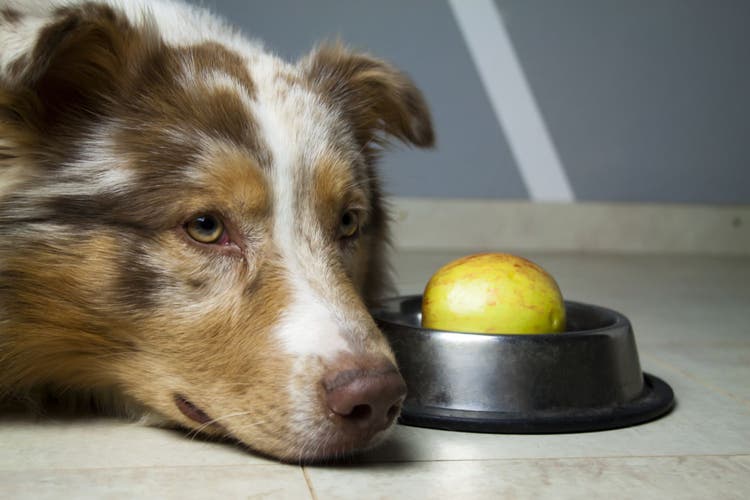
Can Dogs Be Vegetarian?
Should Dogs be Fed a Vegetarian Diet or is Meat Essential to Their Overall Health?
Many vegetarian dog owners wonder if they’re able to feed their dogs a meat-free diet. Can dogs be vegetarian? The short answer is yes. Dogs are actually omnivores, even though it’s often assumed that they’re carnivores. While dogs are descended from wolves, their bodies are able to receive the nutrients they need from both plants and animals.
Two of the key things that dogs have difficulty receiving from a vegan diet are proteins and fats, but with a vegetarian diet, it’s easier for dogs to get these from eggs and dairy products. Eggs are also rich in amino acids, which is another nutrient that is typically derived from meat.
So, if you’re a vegetarian and you’d prefer not to handle meat to feed your dog, or if you want to share the health benefits that you’ve found with your dog, a vegetarian dog is possible. Plus, if your dog has food allergies, a vegetarian diet might be able to bring him some ease when it comes to eating. Believe it or not, food allergies are actually one of the most common issues that dogs face (behind flea bites) so having your dog switch to a vegetarian option might not be as odd as it seems.
Although dogs’ bodies are built to eat meat, see their long snouts, strong jaws, and sharp teeth, dogs are still able to get the nutrients they need to stay healthy from other sources than just meat. However, as with any diet, there are some dangers that dog owners need to be aware of to ensure they don’t run into any issues.
Can Dogs Be Vegetarian? Here Are the Risks
With any dietary change that you want to make with your dog, you should always consult your vet first. Your vet will be able to tell you what to do first, how to get your dog to eat a new food, and even make suggestions for nutrient-rich dog foods that fit the change you want to make.
It’s also important to remember that humans and dogs are very different. Their bodies process foods a lot differently than ours do, so don’t assume that they’ll react the same way that you do when they’re eating vegetarian-friendly foods. If your dog’s specific nutrient needs aren’t met, the consequences can be dangerous. Nutrient deficiencies aren’t something you want your dog to experience. If they’re not caught early, they can turn into serious issues that could potentially kill your dog because their body is shutting down.
Also, it’s important to note that if you plan on breeding your dog in the future, a vegetarian or vegan diet won’t be possible.
While a vegetarian diet for your dog is possible, it can be dangerous if you don’t pay careful attention to what your dog is eating, and make sure that your dog is staying healthy by regularly checking in with your vet. Regular checks for dogs on a vegan or vegetarian diet should be more regular than what you’re used to, too. Your checkups should include blood work and be at least twice a year so that your vet can check that all your dog’s nutrient levels are where they should be.
Compared to a vegan diet, a vegetarian diet is a lot easier to manage, but still requires a decent amount of work. The dangers and risks are still present even though it’s not as difficult for your dog to get what he needs. The best thing you can do is talk to your vet to make sure you’re not forgetting any important steps, and keep doing your research so you fully understand what you’re getting into.